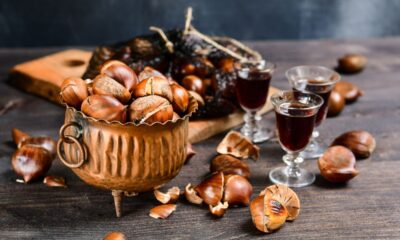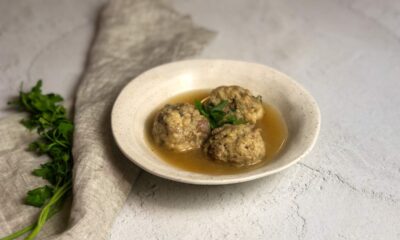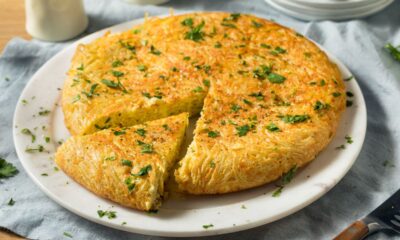Health
Recommended foods during pregnancy: here are the main ones

Pregnancy is an important period in a woman's life
in which the body needs adequate nutrition to support both the future mother and the developing baby during the 9 months preceding the big day of birth.
A balanced diet can guarantee the well-being of the mother and child and prevent any complications during the 9 months and for this reason in this article we will explore which foods are most recommended for a pregnant mother-to-be.

The importance of folic acid
One of the most important elements to include in a pregnant woman's diet is folic acid.
This vitamin, as we are also told in the article published by vitaminbibsa.it which helps us try to understand what folic acid is used for , has a crucial role in the development of the nervous system of the fetus, reducing the risk of congenital malformations such as spina bifida.
Experts recommend taking at least 600 mcg of folic acid per day through foods and supplements, preferably already in the first weeks of pregnancy . Among the foods naturally rich in this substance we find green leafy vegetables (spinach, cabbage), legumes (lentils, beans), whole grains (bread, pasta) and citrus fruits (oranges, lemons). [1]
Iron and its importance during pregnancy
Iron is an indispensable mineral as it contributes to the formation of red blood cells and the transport of oxygen in the tissues. During pregnancy, the need for iron increases significantly, as also reported in this article , and a deficiency of this substance can cause anemia, tiredness and an increased risk of giving birth before the due date.
Iron-rich foods include lean red meats (beef, veal), fish, eggs, legumes (lentils, chickpeas) and green leafy vegetables and are especially recommended during pregnancy. [2]
The role of calcium and phosphorus
Calcium and phosphorus are also essential during pregnancy to ensure the proper development of the fetus' bones and teeth. Many dairy products are excellent sources of these minerals, such as yogurt, milk and cheese.
At the same time, moderation is necessary in the consumption of some soft or raw cheeses, as they may contain bacteria that increase the risk of infections for the mother and child . Cheeses like gorgonzola, for example, are in fact made with unpasteurized milk and with mold and fungi which could cause serious problems for the mother and the fetus, as we are also told on this page which we suggest you visit to find out more about the issue.
Other foods naturally rich in calcium and phosphorus include almonds, spinach and kale, as well as oily fish with bones (such as sardines and mackerel).
Some very important foods to integrate into your daily diet
Fish, especially oily fish, is a good source of omega-3 fatty acids, which are essential for the brain and visual development of the newborn. Using fish in recipes is simple and will contribute to the well-being of the mother and the unborn child during pregnancy.
At the same time, you should remember that it is best to avoid consuming raw or undercooked fish and limit the intake of some predatory fish (such as tuna and swordfish), which may contain high concentrations of mercury.
The intake of vegetables and fresh fruit, also mentioned previously, is also fundamental, as they are sources of vitamins, minerals, antioxidants and fibre. It is advisable to vary between different types of vegetables and fruit to ensure a complete intake of nutrients. Remember to wash them carefully to eliminate any traces of pesticides and bacteria harmful to the health of the pregnant woman and the fetus. [3]
Complex carbohydrates, such as wholemeal bread, wholemeal rice and pasta, must also be present in the daily diet of expectant mothers. They are an important source of slow-release energy, help the digestive system and provide numerous nutrients, including vitamin B and folic acid.
Sources:
[1] www.fondazioneveronesi.it/magazine/articoli/gynecology/cosa-mangiare-in-gravidanza
[2] www.my-personaltrainer.it/nutrizione/alimentazione-gravidanza.html
[3] www.editorebambinogesu.it/alimentazione-in-gravidanza-80498/
Riproduzione riservata © - WT











